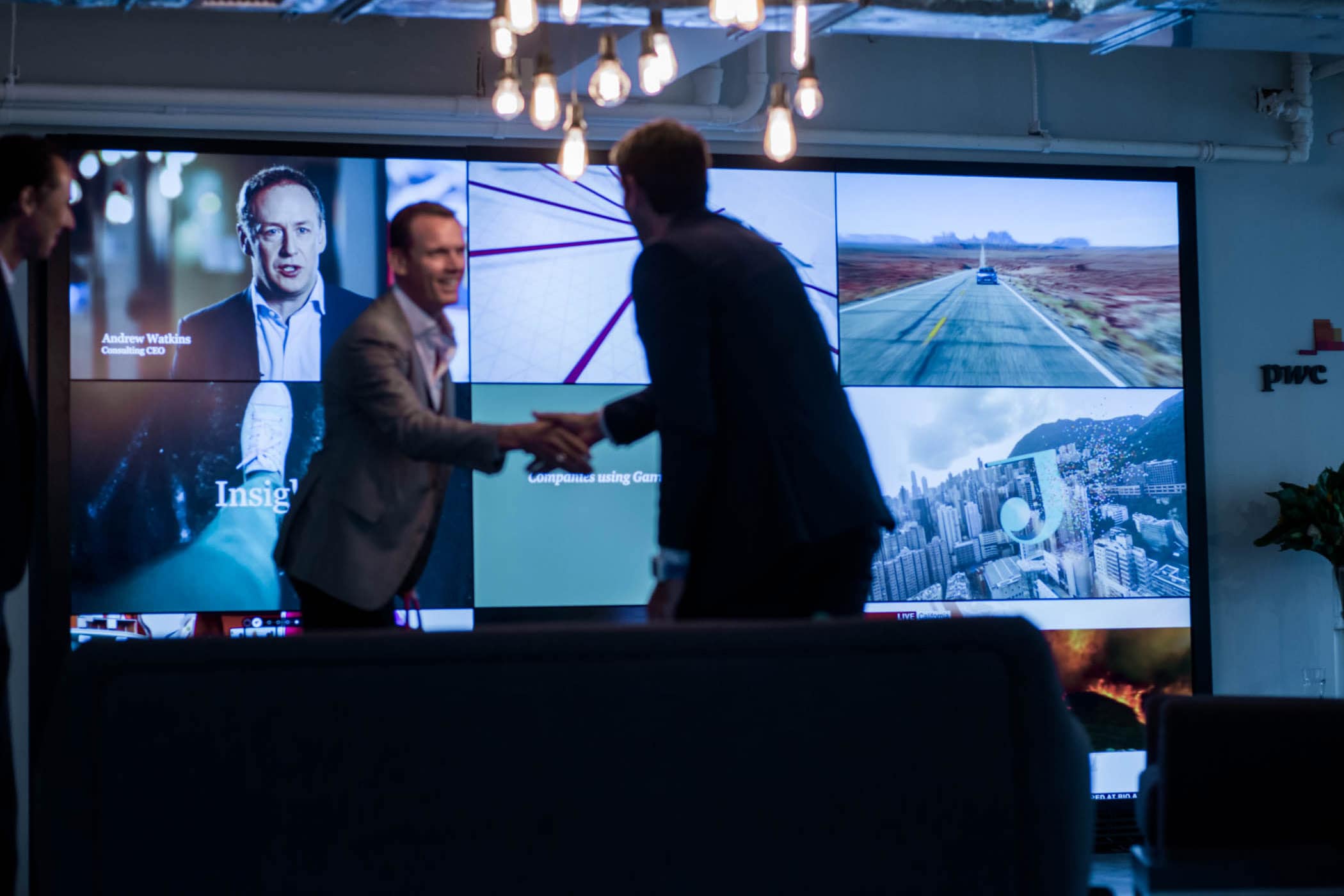{{item.title}}

Key takeaways
Any major milestone in life tends to bring with it a period of self-reflection, a time to examine and perhaps redefine purpose.
Now, as it celebrates its 20th anniversary, PwC’s Global CEO Survey has revealed that organisations are doing something of the same. They’re looking more keenly at their purpose and values, with business leaders confronting questions of humanity, of man versus machine.
Released at the 2017 World Economic Forum in Davos, PwC’s CEO Survey interviews business leaders from around the world to ascertain what they see are the current concerns and future predictions for enterprise.
Accountability and the human connection were major themes of this year’s results. Very much at the fore are anxieties around the new reality of automation and artificial intelligence, and what this means for the roles and skills required in the workplace.
What has also become very clear over two decades of surveys is that digitisation has fueled demands for transparency and trust – a definition that is itself expanding – which in turn, forces corporations to reassess the fundamentals of how they do business.
Just under 1,400 CEOs took part in the 2017 survey, a record 81 of them from Australia. Discussing topics from globalisation, to technology, to recruitment, here are some of the key observations:
How can we create a workforce that’s fit for the digital age? Globally, this is one of the most pressing concerns for CEOs, three quarters of whom cited availability of key skills as a barrier to growth.
Australian CEOs aren’t feeling the pinch quite as much. Only 58% are concerned about their ability to find the right talent, a figure far lower than in China or the US. This could be because they’re seeking to address the issue in house: 75% of organisations in Australia have added digital training to internal programs, for example, compared to 65% of their global counterparts.
Aren’t robots going to take over our jobs? True, there’s a drive for automation – now encompassing not only a robotised manufacturing environment but also back-of-house professional services thanks to robotic process automation and front-line customer service powered by AI chatbots. But this has only driven demand for skills in other areas: those that can build, monitor and repair such technologies, or the very human skills of creativity, leadership and empathy. Here in Australia, adaptability is another popular attribute that CEOs are looking to bring on board.
In light of rising automation, globally CEOs are seeking out human skills such as creativity, adaptability and leadership for their workforce. Source: PwC 20th Global CEO Survey, 2017. (Click to enlarge)
Besides the effect on the workforce, increased automation has had another impact on businesses: their ability to connect with customers. Customer experience is the major focus area for Australian respondents planning to capitalise on new opportunities. This is followed by innovation and digital and technology capabilities.
However, ticking in the background is the spectre of automation and artificial intelligence. Whilst the technology can certainly offer improvements in terms of productivity, half of CEOs flagged up AI and automation as having, to some extent, a negative impact on levels of stakeholder trust.
The fastest growing concerns for CEOs globally include the speed at which technology is advancing, changing customer behaviours, and lack of trust in business. The question is, how can organisations continue to inspire faith and loyalty in their customers amidst a landscape of increased automation and virtual interaction?
What’s keeping CEOs up at night? Availability of skills is a key issue globally, but the speed of change is creeping up. Source: PwC 20th Global CEO Survey, 2017. (Click to enlarge)
The trust question didn’t enter our CEO Survey until 2002, when only 29% of global business leaders believed that loss of trust could pose a serious threat to their organisation. In 2013, 37% perceived that a lack of trust in their company could challenge growth. This year, that figure is 58% globally, 63% in Australia and a staggering 85% in China.
The topic of trust is so pervasive that it can take a number of forms: can customers be confident that their personal data is being treated with respect? Can shareholders be assured that company assets are protected, such as data or intellectual property, and the business is doing all it can to guard itself against cyber attacks? Consider that 80% of Australian CEOs are somewhat or extremely concerned about cyber threats. In a world of proliferating connection thanks to the internet of things, how can organisations design experiences for customers that are secure – but not to the point where cumbersome protocols detract from ease of use?
Stakeholder trust has raced up the ranks to become a major factor in an organisation’s growth prospects. Source: PwC 20th Global CEO Survey, 2017. (Click to enlarge)
Despite such uncertainties, however, Australian CEOs’ confidence in growth is back – it’s higher than last year, and higher still than that of their global counterparts. In navigating through the latest frontiers of automation and transformation, they should continue to reach out to employees, customers and wider society. The key will be seeking out the right ways to connect, build trust, and form lasting relationships.
References

© 2017 - 2026 PwC. All rights reserved. PwC refers to the PwC network and/or one or more of its member firms, each of which is a separate legal entity. Please see www.pwc.com/structure for further details. Liability limited by a scheme approved under Professional Standards Legislation.
